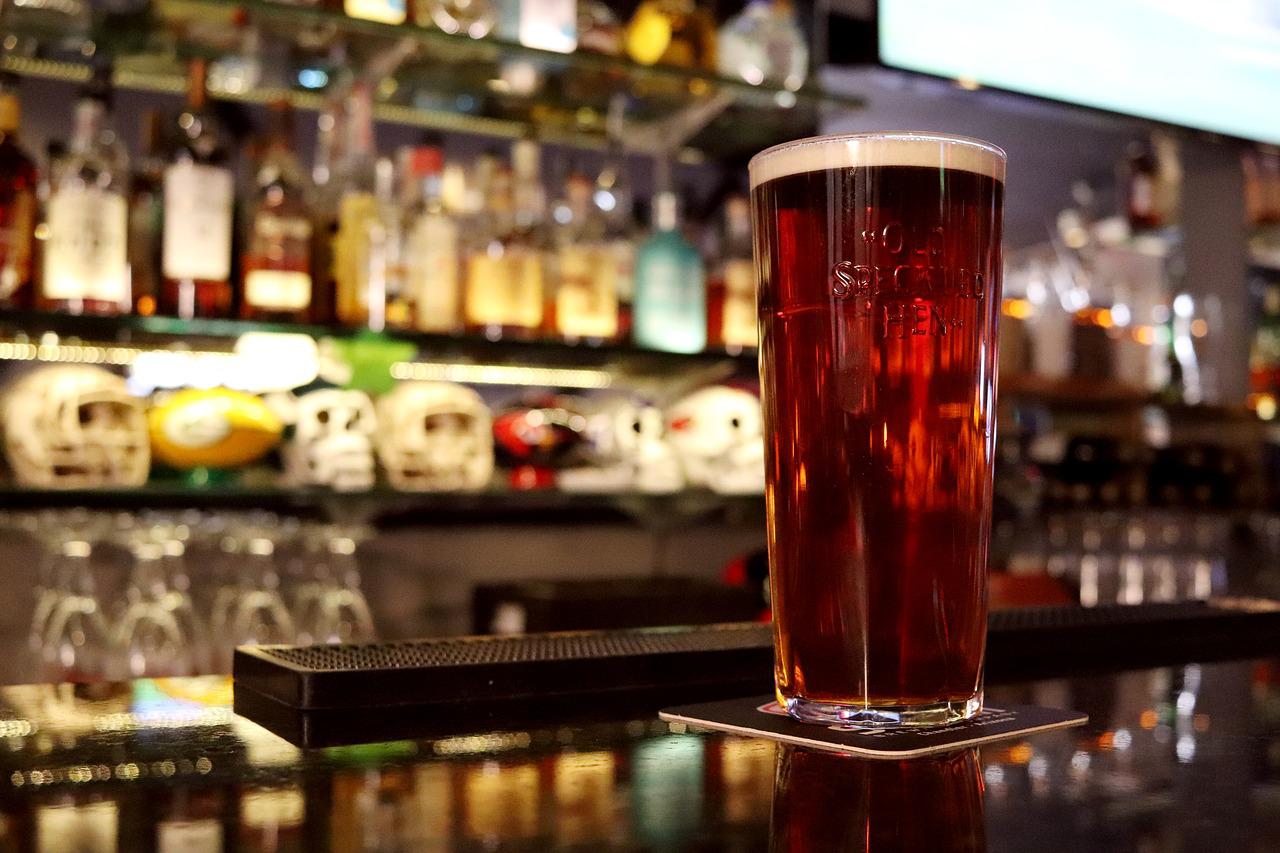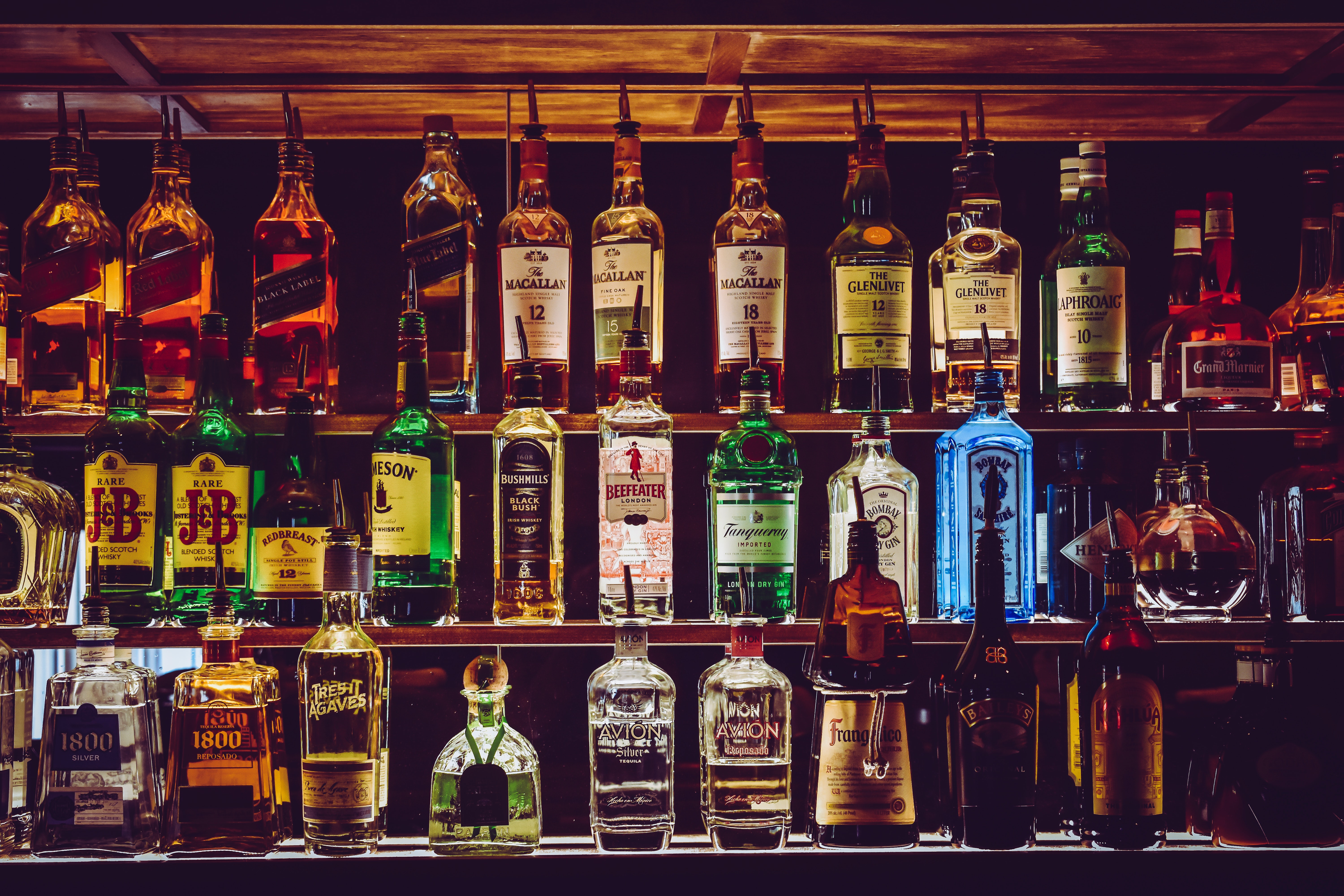Find out more about The Open University's History and Social Sciences qualifications.
This article belongs to the Women and Workplace Struggles: Scotland 1900-2022 collection.

Setting the Scene
Two old guys at the bar where I was working:
“Whaur’s ma New Year’s kiss then?”
“Aye, and whaur’s mine?”
“No thank you,” I said.
“Aw, come on! Ye’ve got tae gie me a New Year’s kiss!”
“No thank you,” I repeated and went to get on with cleaning glasses.
Their tone became increasingly annoyed and indignant.
“That’s bloody ridiculous that. We should get a New Year’s kiss – it’s traditional. Yer no bein fair.”
I felt uncomfortable and anxious. I did not want to annoy the customers, but I definitely didn’t want to kiss them. I tried to carry on with work. I didn’t want to come out from behind the bar, as I felt intimidated. They then started to complain to the woman who worked alongside me that I wouldn’t kiss them.
“Ach, go on,” she said. “It’s just banter.”
Working in a Bar in Fife in the 1980s and 1990s: My Personal Experience

I should perhaps have known from the advertisement for the job, that this is what it would be like. ‘Attractive bar staff wanted’ the advert said. I wondered about applying, because I didn’t know what they meant by attractive or if I would fulfil their attractiveness criteria. Why did I have to be beautiful to work in a bar? Surely the main skills would be serving the correct drinks, clearing up glasses and being polite and courteous with customers. What did the way I looked have to do with that?
This was the culture of bars in the late 1980s and early 1990s in Kirkcaldy and Glenrothes and, I am sure, across much of Scotland. At that time, pubs were still a male domain and there were very few female customers. Women usually came in with their male partners and occasionally in groups, depending on the type of bar. Female bar staff were therefore outnumbered by their male customers in these arenas.
The uniforms female bar staff were provided with were usually highly sexualised. In one bar, I wore a wrap-around skirt to my mid-calves, which would open to reveal my legs. This was matched with an off-the-shoulder top, which exposed my breasts when I bent over. In that bar, I was told by a manager that it was accepted policy to employ attractive female staff in scant uniforms, as this would bring the men to their bars. And I realised then that my body was being used directly as a way to make money for the company. I was on a par with the beer they sold or the crisps and nuts they stocked: my body was property, something which was commonplace across the so-called ‘hospitality industry’ and other sectors – another mechanism to increase profits.
Sometimes I had to do a two-hour shift on my own – completely solo. This was because it was quiet in the early evenings and the company did not want to pay for too many staff, and I took the hours because I needed the money. I was fairly naïve and did not really consider my own safety. I was responsible for a big bar area, with two tills, at opposite sides. I also had to go down to the cellar to change beer barrels, when necessary, which meant descending a flight of stairs and leaving the bar unattended. If money had gone missing from the tills, I would have been responsible. I could also have easily been followed to the cellar, as the door to that area did not lock. Again, I felt vulnerable, anxious and unsupported by my employers.
The demands for kisses were by no means the worst of my experiences. One night, I was collecting used pint glasses, having to pile them up one inside the other, and with my arms full, a man came up to me and groped both of by breasts, one in each of his hands. He let out some kind of lecherous roar and his mates all laughed and jeered along with him. I shouted, “Hey! Get off” and had to pull away. I walked away back to the safety of behind the bar. I felt shocked. I felt used. I felt invaded. I felt humiliated. I felt angry. I told a colleague. “Ach, he’s just an arse. He’s harmless.” My body had been touched without my permission – I had been sexually assaulted – and it was seemingly all just a joke.
My Body as Entertainment
However, this was not a joke. My body had been used by men, once again, as entertainment. Somehow, I was part of the fixtures of that bar – of any bar I worked in. I was an object for male recreation, like the big tv where they showed sports, or the pool table, or the dominoes sets. I had my buttocks slapped and was called a ‘wench’; my hair, legs and breasts were commented on frequently, both positively and negatively; I was propositioned for a ‘good time’ and felt their anger rise as I turned them down. Each time I felt violated and dirty.
What bothered me too was that colleagues and managers did not recognise this for what it was – sexual harassment and assault. It was trivialised, downplayed; presented as something I should just expect to happen and put up with because I was a woman. If I complained, I was told again and again, “Ach, it’s just banter.”
There was no real challenge to this toxic situation from the female bar staff. Some of them seemed almost complicit, although in reality they were just trying to fit in and not be seen as troublemakers. However, I noticed others were careful about the times they chose to work, choosing afternoon shifts when it was quieter to avoid unwelcome male attention.
Working in bars at that time was too often distressing and dangerous for me. As a young student, I worked there out of necessity, rather than choice. The everyday sexism and sexual assault I was subjected to has never completely left me. It is never just banter.
Night at the Hotel – A Poem by Hilary Jones
Hilary Jones worked in the hospitality industry from 2010 to 2014. As part of her BA (Hons) Sociology, she also studied the industry, and found that working in hospitality was a type of performance and that smiling was a key part of this. Her experiences and thoughts are reflected in her poem, which she reads aloud here.




Rate and Review
Rate this article
Review this article
Log into OpenLearn to leave reviews and join in the conversation.
Article reviews